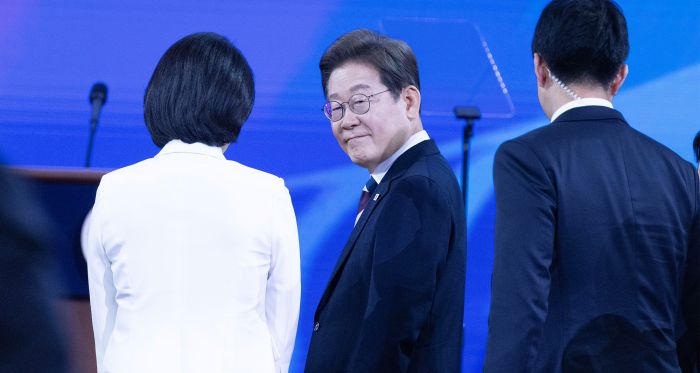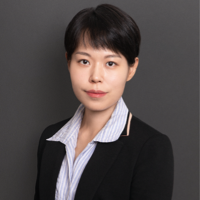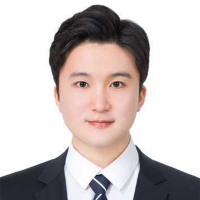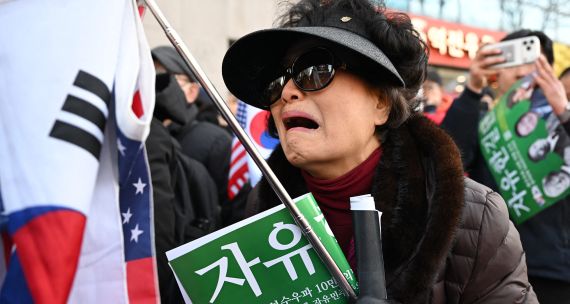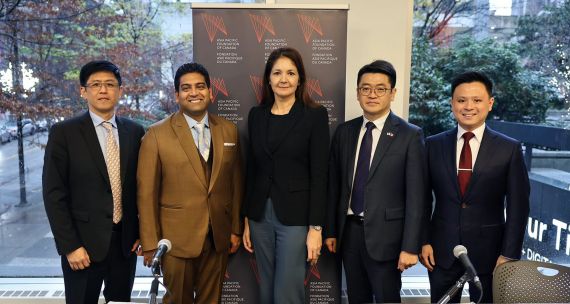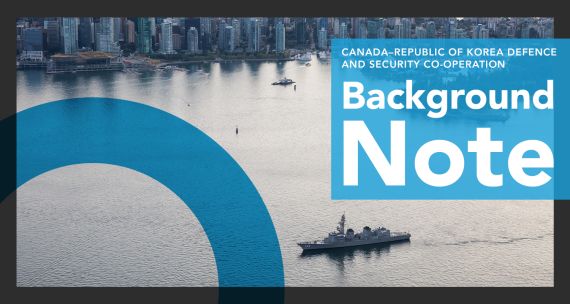The Takeaway
On June 3, 2025, South Korea held its 21st presidential election, resulting in the victory of opposition candidate Lee Jae-myung. The election, triggered by the December 2024 impeachment of former president Yoon Suk Yeol, took place amid heightened social tensions. As the new president, Lee will be tasked with uniting a deeply polarized society and re-establishing South Korea’s regional and global credibility. However, ongoing legal challenges and a deeply divided political landscape will shape the trajectory of his presidency. Lee’s leadership may mark a shift toward dialogue with North Korea and a recalibration of Seoul’s ties with Japan, while maintaining strategic alignment with U.S. priorities, particularly in extended deterrence and critical technology supply chains.
In Brief
- Lee, the leader of the Democratic Party, won the election with 49.42 per cent of the vote, defeating the runner-up, Kim Moon-soo from the People Power Party (PPP), by a margin of 8.27 percentage points. This is Lee’s second presidential run; he narrowly lost to Yoon by 0.73 percentage points in the 2022 presidential election. With a tentative voter turnout of 79.4 per cent, Lee earned 17.28 million votes, exceeding the all-time high of 16.39 million votes obtained by Yoon in the 2022 election. His single, five-year term begins on June 4, forgoing the usual two-month presidential transition period.
- In his victory speech, Lee pledged to restore democratic values, revitalize the economy, ensure national security, and pursue peace on the Korean Peninsula.
- Despite his victory, Lee faces unresolved legal challenges stemming from his time as mayor of Seongnam and as governor of Gyeonggi. Lingering allegations of abuse of power, including one charge related to a controversial real estate development project in 2023, have amplified public demands for transparency and accountability for Lee. (Lee disputes these charges.) The new president’s ongoing legal uncertainty may limit his political capital, undermine his legitimacy, and reignite debate over the scope and limits of presidential immunity.
- Kim Min-seok, a four-term lawmaker, was appointed prime minister following the election. Kang Hoon-sik, a three-term legislator, was tapped as Lee’s chief presidential secretary. Both officials are considered part of Lee’s inner circle.
Implications
On the economic front, Lee is promoting a new industrial strategy and a renewed push for multilateralism. His administration is likely to re-engage in regional trade platforms and supply chain initiatives, and increase public spending on semiconductors, clean energy, and digital infrastructure. However, balancing economic goals with alliance expectations — especially as the U.S. pushes allies to ‘de-risk' from China — will require deft diplomacy. Moreover, amid seemingly relentless U.S. tariffs on South Korea’s major exports, such as steel, aluminum, and automobiles, Lee will have to pursue strategic co-ordination with key trade partners. He will also have to mount an assertive defence of South Korean industry through both bilateral and multilateral forums. Lee views artificial intelligence as a strategic asset and is expected to pursue domestic legislation on AI governance and standards, strengthening South Korea’s position as a leader in ethical and secure AI development. By aligning with global partners, especially the U.S., Canada, and the European Union, on issues such as data regulation, defence applications, and joint research and development, South Korea could exert greater influence in shaping digital norms.
On foreign policy, Lee is expected to depart from Yoon’s U.S.-centric, Japan-friendly regional security initiatives based on shared values and instead resume cautious engagement with China and Russia to maximize South Korea’s manoeuvrability in an increasingly polarized regional order. His engagement-oriented approach to North Korea, including the resumption of communication lines, contrasts sharply with the U.S.’s deterrence-oriented approach. This divergence could test Korea’s trilateral cohesion with the U.S. and Japan, particularly on sanctions enforcement and extended nuclear deterrence. Lee also supports the accelerated transfer of wartime operational control from the U.S. to the South Korean military, positioning it as a long-overdue assertion of sovereignty. While this stance aligns with broader objectives of the progressive party, it may generate friction within the U.S.-South Korea alliance if not managed through careful sequencing and co-ordination.
Lee enters office with ambitious plans to reform South Korea’s judicial and prosecutorial institutions, including proposals to expand the number of Constitutional Court justices and augment prosecutorial powers. These structural initiatives, aimed at diversifying legal interpretations and rebalancing institutional power, are likely to provoke fierce resistance from conservatives and further fuel polarization. Despite a fractured political landscape, Lee is likely to advance his policy agenda, supported by his party’s majority in the National Assembly.
What’s Next
1. Legislative strategy, cabinet picks to shed light on Lee’s priorities
Backed by a legislative supermajority, Lee enters office with strong political support, but will be dogged by uncertainty due to his ongoing legal cases. The impeachment of his predecessor created widespread social turmoil, and Lee’s early choices — particularly his cabinet appointments and legislative strategy — will be critical in regaining public trust. Whether he governs through unilateral reform or seeks bipartisan co-operation with the weakened conservative opposition will determine the tone of his presidency and the health of South Korea’s democracy.
His selection of key figures for the country’s foreign affairs and economic ministries will also signal how he intends to navigate the U.S.-China rivalry. Additionally, it will be critical to watch if his professed “pragmatic diplomacy” — backed by a sizable team of experienced foreign policy advisers — will translate into actionable shifts in Seoul’s approach to China, Russia, North Korea, and multilateral institutions.
2. Canada-South Korea ties likely to strengthen under Lee
Lee is likely to stay the course and deepen bilateral co-operation with Canada under the existing Canada-South Korea Comprehensive Strategic Partnership.
His policy agenda aligns with Canadian priorities in critical minerals, clean energy, defence co-operation, and strategic technologies. The continued implementation of the Minerals Security Partnership will reinforce joint efforts to secure essential inputs for key industries, including semiconductors and battery manufacturing. South Korea’s expected participation in the G7 Outreach Summit in June, hosted by Canada, will create even more opportunities for high-level engagement.
Additionally, the upcoming 2025 APEC Summit in Gyeongju, South Korea, is expected to facilitate discussions on next-generation technologies such as AI, aerospace, and quantum innovation — areas where Canadian and Korean interests increasingly converge.
- Edited by Vina Nadjibulla, Vice-President Research & Strategy, Jeehye Kim, Senior Program Manager, and Ted Fraser, Senior Editor, APF Canada
